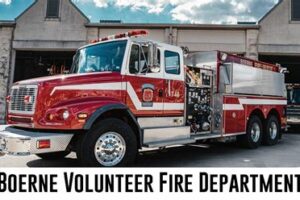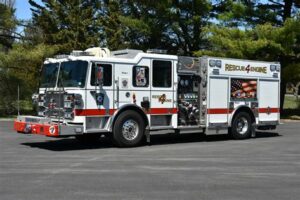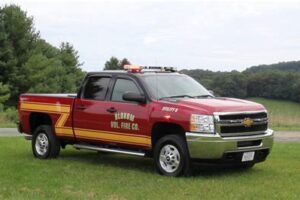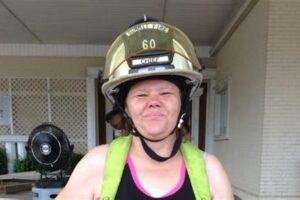Table of Contents
Discover the noble world of volunteer fire fighting, where everyday heroes selflessly dedicate their time and skills to protect communities from fires and emergencies. Learn about the training, commitment, and camaraderie that define this vital role in society. Join us in celebrating these brave individuals who answer the call to serve and make a difference in the lives of others.
Volunteer Fire Fighting, a noble and selfless endeavor, embodies the true spirit of community service. In the face of disaster and danger, these brave men and women step forward, ready to risk their lives for the safety and well-being of others. With unwavering dedication and a strong sense of duty, these everyday heroes embody the essence of resilience and compassion. Whether it’s battling raging infernos, rescuing trapped individuals, or providing emergency medical care, these volunteers serve as a beacon of hope in times of crisis. From rural towns to bustling cities, they form an indispensable part of our society, tirelessly working to protect and preserve our communities. In this article, we will delve into the world of Volunteer Fire Fighting, exploring the challenges they face, the impact they make, and the inspiration behind their tireless commitment.
The Unsung Heroes of Our Communities
Volunteer firefighters are the unsung heroes of our communities. They selflessly dedicate their time, energy, and expertise to protect the lives and property of their fellow citizens. These brave men and women play a crucial role in emergency response, often putting their own lives on the line to save others. Volunteer fire departments are an essential part of the firefighting system, complementing the efforts of their professional counterparts. Let’s delve into the world of volunteer firefighting and explore the challenges they face, the training they undergo, and the impact they have on our communities.
The Challenges of Volunteer Firefighting
Volunteer firefighting comes with its fair share of challenges. One of the most significant hurdles is the limited availability of resources. Unlike professional fire departments that have a dedicated budget and staff, volunteer departments heavily rely on donations, grants, and community support to fund their operations. This often means working with outdated equipment, insufficient training facilities, and a lack of manpower. Despite these obstacles, volunteer firefighters remain resilient and committed to ensuring public safety.
Training and Skills Development
To effectively respond to emergencies, volunteer firefighters must undergo rigorous training and skills development. They learn how to handle various firefighting equipment, perform search and rescue missions, administer first aid, and manage hazardous materials. Training programs are designed to simulate real-life scenarios, allowing volunteers to develop the necessary skills and confidence to tackle any situation that may arise. Continuous training is essential to maintain proficiency and stay updated with the latest firefighting techniques and safety protocols.
The Call to Duty
When a fire breaks out or an emergency occurs, volunteer firefighters answer the call to duty. Regardless of the time of day or night, these dedicated individuals drop everything and rush to the scene. It requires tremendous courage and a sense of responsibility to put oneself in harm’s way for the greater good of the community. The commitment shown by volunteer firefighters is truly remarkable and deserves our utmost respect and admiration.
Community Impact
Volunteer fire departments have a significant impact on the communities they serve. Beyond firefighting, they also assist in medical emergencies, natural disasters, and other hazardous situations. Their presence provides a sense of security and reassurance to residents, knowing that help is always just a phone call away. Moreover, volunteer firefighters often engage in community outreach programs, educating citizens about fire safety, conducting drills, and promoting preparedness. They foster a strong bond between the community and the fire department, building trust and cooperation.
A Day in the Life of a Volunteer Firefighter
While every day for a volunteer firefighter is unique, their routine typically involves regular training sessions, equipment maintenance, and community engagement activities. When an emergency call comes in, they swiftly respond, working as a team to control the situation and ensure the safety of all involved. The adrenaline rush and camaraderie experienced during these moments create a strong sense of purpose and fulfillment.
Supporting Our Volunteers
Given the vital role volunteer firefighters play in our communities, it is crucial to provide them with the support they need. This includes financial aid, proper equipment, and adequate training resources. Community members can contribute by donating to their local volunteer fire department, participating in fundraisers, or even considering volunteering themselves. Recognizing the efforts of these brave individuals through public appreciation events or awards can also go a long way in boosting morale and encouraging others to join their ranks.
Beyond the Flames
Volunteer firefighting extends beyond extinguishing flames. These selfless individuals are always ready to lend a helping hand, whether it’s assisting in car accidents, rescuing animals, or providing support during natural disasters. Their dedication to serving others is awe-inspiring and embodies the true spirit of community. Volunteer firefighters are the backbone of our emergency response system, and their contributions should never be overlooked or taken for granted.
The True Heroes Among Us
Volunteer firefighters are the true heroes among us. They embody bravery, sacrifice, and selflessness while working tirelessly to protect our communities. It is essential to acknowledge their invaluable service and express gratitude for the risks they take and the lives they save. The next time you see a volunteer firefighter, take a moment to thank them for their unwavering dedication. Let us come together as a community to support these remarkable individuals who make our world a safer place.
The Lifeblood of Small Towns and Rural Areas
Volunteer fire fighting serves as the lifeblood of countless small towns and rural areas, where dedicated individuals selflessly donate their time and energy to protect their communities. These local heroes often face daunting fires, accidents, and emergencies with limited resources, enhancing the crucial role they play in keeping their neighbors safe.
Answering the Call: Round-the-Clock Availability
Volunteer fire fighters demonstrate an unwavering commitment by making themselves available around the clock, ready to respond to emergencies at a moment’s notice. Balancing family, work, and other obligations, these community members are always prepared to leave everything behind to face any peril and protect both lives and property.
Extensive Training and Continuous Learning
Volunteer fire fighters undergo rigorous training to develop the necessary skills, knowledge, and proficiency required for their demanding role. From firefighting techniques and hazard mitigation to search and rescue operations, they continually update their expertise to ensure their communities receive the highest level of care during emergency situations.
Fundraisers and Community Engagement
Beyond combating emergencies, volunteer fire departments actively engage with their communities through fundraising events, public education programs, and community outreach initiatives. These efforts bolster the department’s resources, helping them acquire necessary equipment, up-to-date technology, and training materials, and also foster strong bonds between firefighters and the people they serve.
Collaboration with Professional Firefighters
Volunteer and professional fire fighters regularly work hand in hand, combining their skills and experience to conquer challenging incidents. This teamwork ensures efficient responses, seamless coordination, and maximum safety for all involved, underscoring the importance of mutual support and respect in the fire fighting community.
Mentorship and Youth Programs
Many volunteer fire departments offer mentorship opportunities and youth programs, aiming to inspire the next generation to become involved in fire fighting. By educating and empowering young individuals, these programs nurture a sense of responsibility, loyalty, and public service, ultimately sustaining the legacy of volunteerism and community protection.
Emotional and Mental Well-being Support
Firefighting, even as a volunteer, can be emotionally and mentally challenging. Recognizing the importance of addressing the emotional well-being of their members, many volunteer fire departments provide support systems, such as counseling or peer assistance programs, to ensure the overall health and resilience of their dedicated firefighters.
Evolving Role and Modern Challenges
Volunteer fire fighting has continuously evolved to meet the demands of an ever-changing world. Not only do volunteers combat traditional fires, but they also tackle emergencies related to hazardous materials, natural disasters, and even medical emergencies. As communities grow and threats diversify, these dedicated individuals adapt to face modern challenges head-on, safeguarding their neighborhoods with unwavering courage and determination.
Volunteer Fire Fighting: A Community’s Unsung Heroes
1. Introduction:
Volunteer firefighters play a crucial role in ensuring the safety and well-being of communities around the world. These selfless individuals dedicate their time, energy, and expertise to protect lives and property without expecting any monetary compensation in return. In this article, we shed light on the invaluable service provided by volunteer firefighters and explore the reasons behind their unwavering commitment.
2. The Backbone of Fire Response:
– Volunteer firefighters serve as the backbone of fire response in many communities, especially those located in rural areas or small towns. They generously offer their skills and resources to tackle emergencies, filling the gaps where professional fire departments may not be present or adequately staffed.
– With their extensive training and hands-on experience, volunteer firefighters are equipped to handle a wide range of situations, from extinguishing structure fires to rescuing trapped individuals and managing hazardous materials incidents.
3. Rapid Response Time:
– One significant advantage of having volunteer firefighters within a community is their ability to respond swiftly to emergencies. Since they often live or work in close proximity to the fire station, their response time is typically faster than that of professional firefighters who may need to commute from distant locations.
– This quick response time can make a critical difference in containing a fire before it spreads further, preventing extensive damage and potential loss of life.
4. Deep Local Knowledge:
– Volunteer firefighters possess a deep understanding of their community’s unique characteristics, such as the layout of buildings, access points, and potential hazards. This local knowledge proves invaluable during emergency situations, allowing them to navigate the area efficiently and make informed decisions.
– Additionally, their familiarity with the community enables them to establish trust and rapport with residents, creating a sense of comfort and reassurance during times of crisis.
5. Community Engagement:
– Beyond their firefighting duties, volunteer firefighters actively engage with the community through various initiatives. They participate in educational programs, teaching fire safety and prevention practices to children and adults alike.
– By organizing events such as open houses and fundraisers, volunteer firefighters foster a strong sense of community spirit while raising awareness about fire safety and the importance of their role.
6. Sacrifice and Camaraderie:
– Volunteering as a firefighter requires immense sacrifice and dedication. These brave men and women willingly put themselves in harm’s way to protect others, often juggling their commitments alongside full-time jobs and family responsibilities.
– The bond formed within a volunteer fire department is unique and built upon a foundation of trust, camaraderie, and shared experiences. Firefighters become a close-knit family, supporting one another both on and off the field.
7. Conclusion:
Volunteer firefighters exemplify the true essence of community service. Their selflessness, bravery, and unwavering commitment to keeping their communities safe deserve recognition and appreciation. As we go about our daily lives, we should never forget the sacrifices made by these unsung heroes who stand ready to protect us at a moment’s notice.
Thank you for taking the time to explore the world of volunteer firefighting with us. We hope that this article has shed light on the invaluable role these brave men and women play in safeguarding our communities. Through their selfless dedication and unwavering commitment, they serve as true heroes, protecting lives and property day in and day out.
Volunteer firefighting is a noble and demanding calling that requires immense courage, physical strength, and a deep sense of community. These individuals willingly put themselves in harm’s way to ensure our safety, often sacrificing their own well-being for the greater good. They embody the spirit of altruism and exemplify what it means to be a responsible and caring citizen.
It is important to recognize that volunteer firefighters not only respond to emergencies but also play an active role in preventing them. They engage in extensive training, honing their skills in fire suppression, search and rescue, and medical assistance. By conducting fire drills, inspecting buildings for potential hazards, and educating the public about fire safety, they strive to create a safer environment for all. Their vigilance and proactive approach make a significant difference in preventing disasters before they even occur.
As we conclude our exploration of volunteer firefighting, it is crucial to acknowledge the immense sacrifices these individuals make. The long hours spent away from their families, the physical and emotional toll they endure, and the risks they face are all part of their daily reality. Yet, despite these challenges, they continue to serve with unwavering dedication and unwavering resolve.
We encourage everyone reading this article to consider supporting their local volunteer fire departments. Whether through financial contributions, volunteering your time, or simply expressing gratitude for their service, every act of support goes a long way in bolstering their efforts. Together, let us give back to those who give so much to us and ensure that our communities remain safe and protected.
Once again, thank you for joining us on this journey of discovery. We hope that you have gained a newfound appreciation for the incredible work of volunteer firefighters and will continue to support them in any way you can..
1. What is volunteer firefighting?
Volunteer firefighting refers to the practice of individuals offering their time and services to assist in firefighting and emergency response efforts without receiving monetary compensation. These dedicated individuals willingly sacrifice their personal time and often undergo extensive training to protect their communities from fires and other emergencies.
2. How does one become a volunteer firefighter?
There are typically several steps involved in becoming a volunteer firefighter. Firstly, interested individuals must inquire about volunteer opportunities at their local fire department. They may need to fill out an application form and undergo a background check. If accepted, they will usually be required to complete a training program that covers firefighting techniques, equipment operation, and first aid. Upon successful completion, they can officially join as volunteer firefighters and begin serving their community.
3. What are the responsibilities of a volunteer firefighter?
A volunteer firefighter’s responsibilities are multifaceted and demanding. They are expected to respond to emergency calls promptly, assess the situation, and take appropriate action to suppress fires or assist in other emergency situations. This may involve operating firefighting equipment, performing search and rescue operations, providing medical aid, and ensuring the safety of themselves and others. Additionally, volunteer firefighters often participate in regular training sessions to maintain and enhance their skills.
4. Are there any risks involved in volunteer firefighting?
Yes, volunteer firefighting inherently carries certain risks. Firefighters, including volunteers, face potential dangers such as smoke inhalation, burns, falling debris, and structural collapses. Additionally, they may encounter hazardous materials or dangerous situations during emergency responses. However, comprehensive training and safety protocols are in place to minimize these risks and protect the well-being of all firefighters.
5. Can volunteer firefighters work alongside professional firefighters?
Absolutely! Volunteer firefighters often work side by side with professional or career firefighters. In many communities, these two groups form a cohesive firefighting force, collaborating to provide efficient emergency response services. Professional firefighters bring their expertise and experience, while volunteers contribute their time, dedication, and local knowledge. Together, they create a strong and effective firefighting team.
6. Do volunteer firefighters receive any benefits?
While volunteer firefighters do not receive monetary compensation, they may be eligible for certain benefits. These can vary depending on the jurisdiction and fire department policies. Some common benefits could include access to insurance coverage, retirement plans, training opportunities, and recognition programs. Moreover, the satisfaction of serving their community and making a difference in people’s lives is often cited as one of the most rewarding aspects of being a volunteer firefighter.
7. How can I get involved in supporting volunteer firefighters?
There are several ways to support volunteer firefighters and their crucial work. One way is to consider becoming a volunteer firefighter yourself if you have the time and commitment. Alternatively, you can donate to local fire departments or volunteer firefighter associations, which often rely on community contributions to maintain their operations. Additionally, showing appreciation for their selfless service by thanking them, attending fundraising events, or spreading awareness about their efforts can go a long way in demonstrating support.






